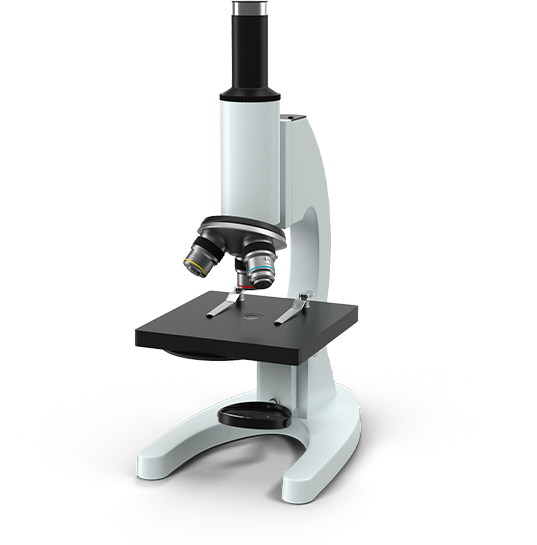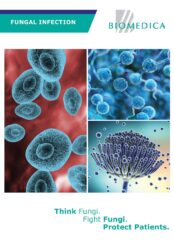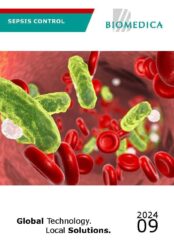Our IVD team is responsible for a wide range of human diagnostic products in private laboratories, hospital laboratories and reference centres in 13 countries. Biomedica is specialised in areas that use state-of-the-art technology comprising point-of-care testing as well as medium to high throughput testing. Many of our products are validated for premium equipment and/or closed systems.
Biomedica not only supplies the market with reagents and test kits but also with equipment that is installed, validated, maintained and serviced by Biomedica’s experts on site. We train and instruct the customer during the installation and offer training courses and continuous service and maintenance programmes.
Our suppliers are select market leaders in their fields, who are renowned for their cutting-edge quality products. Over more than 40 years of cooperation with our suppliers, we have established a basis for sustainable and constructive collaboration and are thus able to provide our customers with fast responses and appropriate solutions for their specific needs.
Main Areas
Biomedica offers you tests for the analysis of all parameters related to the immune system (immune cells, immune mediators, antibodies, immune genes) for the diagnosis of immune diseases (allergies, autoimmune diseases, autoinflammatory diseases, immunodeficiency diseases) or pathological or undesired immune responses (transplant rejection, graft-versus-host disease, recurrent abortions).
Furthermore, we offer immunological tests (ELISA, CLIA, RIA) for the determination of hormones, tumour markers and many other parameters.
Viruses are biological entities that can only thrive and multiply in a host, which is a living organism such as a human, an animal, or a plant. Some viruses cause mild to severe diseases.
Biomedica offers an extensive range of tests and components which assist in the fast and efficient diagnosis of viral infections including DNA/RNA applications, antigen/antibody detection as well as rapid tests.
We offer a wide variety of platforms ranging from fully automated single-sample instruments to high-throughput molecular workstations. In vitro diagnostic instruments ensure reliable diagnostic testing. Biomedica constantly strives to offer innovative, state-of-the-art instruments.
Bacteriology is the branch of microbiology that studies the morphology, ecology, genetics and biochemistry of bacteria as well as many other related aspects. Understanding these characteristics can assist in preventing or diagnosing diseases caused by bacteria. Biomedica offers a wide range of products for clinical bacteriology including culture media and rapid molecular test systems.
Bringing the test conveniently and rapidly to the patient is the driving force behind point-of-care testing. POC diagnostic devices obtain results close to the patient outside of laboratory settings by collecting and analysing specimens and then providing quick feedback and results.
Point-of-care testing (POCT or bedside testing) is defined as medical diagnostic testing at or near the point of care, i.e. at the time and location of patient care. This is in contrast to the long-established practice of testing wholly or mostly in a medical laboratory.
Potential operational benefits include more rapid decision-making and triage, reduced operating times, high-dependency post-operative care time, emergency room time, number of outpatient clinic visits, and number of hospital beds required, thus ensuring optimal use of professional time and reduced antimicrobial medication.
Parasitology is the study of parasites, their hosts, and the relationship between them.
A parasite is an organism which lives on or in a host and obtains its food from its host.
Together with our partners, Biomedica can offer you test systems for diagnosing diseases that are caused by the 3 main classes of parasites:
protozoa (Giardia, malaria, Entamoeba, etc.), helminths (Ascaris lumbricoides, Filaria, Taenia, Strongyloides, etc.), and ectoparasites (mosquito & tick-borne diseases).
Similar to bacteria, parasites can develop drug resistance, which means that early diagnosis is important in controlling infections and predicting future outbreaks.
Fungal infections affect approximately one-quarter of the global population. They kill at least 1,350,000 patients with or following AIDS, cancer, tuberculosis and asthma globally each year. An observed increase in the incidence of drug-resistant and previously rare fungal species is becoming a public health concern. Despite the high clinical and economic burden, public awareness of invasive fungal diseases is still low.
An early diagnosis and correct treatment have a direct impact on patient survival. Thus, there is an urgent need for improved diagnostic options to provide a rational basis for antifungal therapy. The introduction of non-culture tests for early detection of infection with a rapid assessment of drug susceptibility is an important step in this direction.
Biomedica has a comprehensive portfolio of diagnostics, including molecular assays, dedicated to the rapid detection and differentiation of fungal pathogens and assessment of potential drug resistance.
Every year, researchers discover new details of human genetic disorders, which lead to innovative treatment possibilities. This then requires sensitive, accurate and reliable methods and standardised assays. Asuragen kits with AmplideX line offer a state-of-the-art design, reduced complexity, optimised workflow and quality performance. Their portfolio includes kits for diagnosing Fragile X syndrome, spinal muscular atrophy, myotonic dystrophy, Huntington’s disease, frontotemporal dementia (C9orf72) and Alzheimer’s disease.
Another major area for genetic testing is typing for transplants and transfusions.
We are committed to defining a new standard of care in pre-transplant screening, post-transplant monitoring, transfusions, and companion diagnostics. We support laboratories with a comprehensive line of HLA typing, antibody detection, blood testing products and laboratory instrumentation. Assisted by all-inclusive software, our cutting-edge HLA tests simplify, manage, and report test results — thus enabling laboratory professionals, clinicians, and researchers to improve the lives of patients and their families.
With best-in-class reagents, a viscosity-based detection system, advanced digital solutions and flexibility across the entire laboratory space, you will find a solution that is suitable for your lab. We can equip all labs ranging from the smallest coagulation lab to the big lab chain networks. Here, you will find basic routine reagents for highly specialised applications. You can opt for a simple configuration, an advanced connection to TLA or create your own work cell. We offer constant customer support, continuous education and an innovative approach.
We distribute a comprehensive line of HLA typing and antibody detection products, laboratory instrumentation, and computer software, which are used to simplify and automate testing procedures and final test evaluations. These diagnostic tests are used by transplant centres worldwide to determine the compatibility of donors and recipients prior to a transplant and, following a transplant, to detect the presence of antibodies that can lead to transplant rejection.
Facilitating a new standard of care in transplant monitoring is the driving force behind our products and training programmes.
Key Areas:
- Transplant Monitoring Solutions
We offer the world’s leading collection of integrated solutions to help you identify antibodies that may cause graft rejection. Our selection of assays varies in format, sensitivity, and specificity. All products are designed for ease of use, lab efficiency, and optimised automation.
- HLA Typing Technologies
Designed to address the diverse needs of HLA labs, our molecular product family includes next-generation sequencing (NGS), sequence-based typing (SBT), real-time PCR (qPCR), sequence-specific primers (SSP), and reverse sequence-specific oligonucleotides (rSSO).
- Non-HLA Antibody Detecting Solutions
We are proud to be able to offer a solution for all of your antibody detection needs including non-HLA antibodies. Our selection of assays varies in format and coverage from singleplex ELISA AT1R and ETAR assays to multiplex solid-phase assays covering a broad range of targets including vimentin, tubulin, and many others. All products are designed for ease of use and lab efficiency and are optimised for automation.
Oncology is the branch of medicine that deals with the prevention, diagnosis and treatment of cancer. Biomedica collaborates with innovative companies which are striving to introduce new parameters and novel technologies.
Our key products include rapid tests, leukaemia testing, tumour marker identification and monitoring, gynaecological and non-gynaecological cytology as well as therapeutic drug monitoring.
Sepsis is a potentially life-threatening condition, caused by the body´s response to an infection.
It is a global health crisis.
Sepsis affects between 27 to 30 million people worldwide every year, among which 7 to 9 million cases are most often fatal.
Many surviving patients suffer from the consequences of sepsis for the rest of their lives.
Early treatment of sepsis, usually with antibiotics and large amounts of intravenous fluids, increases chances for survival. Sepsis often presents as the clinical deterioration of common and preventable infections such as those of the respiratory, gastrointestinal, and urinary tract, or of wounds and skin. It is frequently under-diagnosed at an early stage - when it is still potentially reversible.
However, every hour the treatment is delayed, the survival rate drops dramatically. That’s why a quick and exact diagnostic is essential in fight against sepsis.
Cytology is a diagnostic method mainly used to screen for or confirm cancerous tissue.
It involves examining a single cell type. Further applications of cytology include screening for foetal abnormalities, bacterial infections and fungal infections. Liquid-based cytology (LBC) is a relatively new method of preparing gynaecological and non-gynaecological samples for cytological examination.
It differs from the classical smear preparation, as cells are suspended in liquid and pressed onto a
glass slide, thus producing a thin cell layer. This greatly enhances sensitivity and specificity and allows for standardisation.




 FUNGAL INFECTION Dx
FUNGAL INFECTION Dx
 SEPSIS CONTROL
SEPSIS CONTROL

